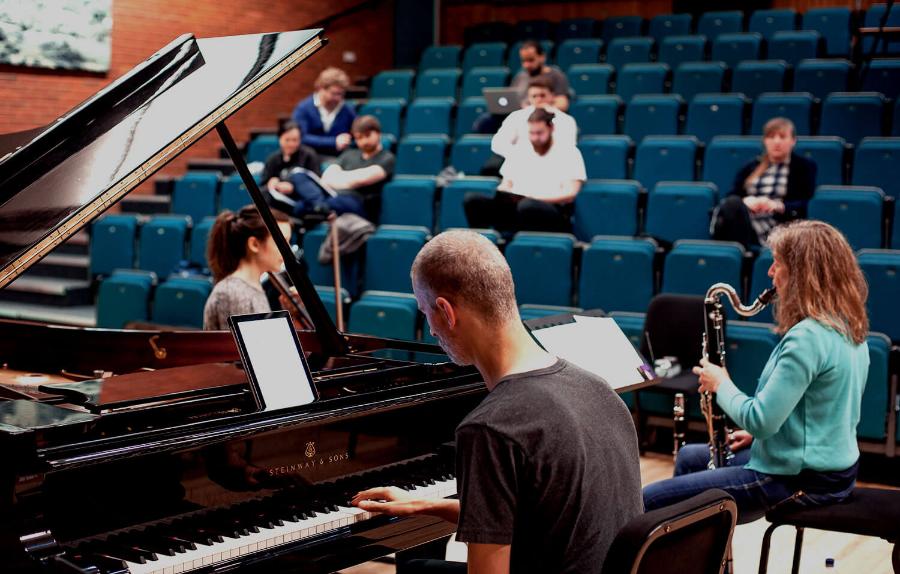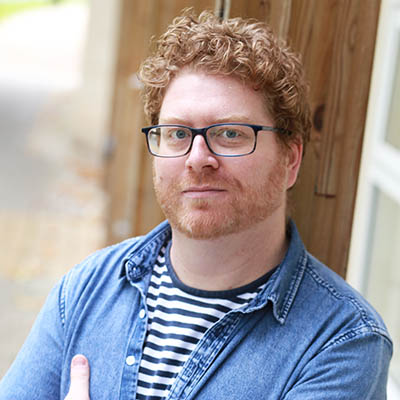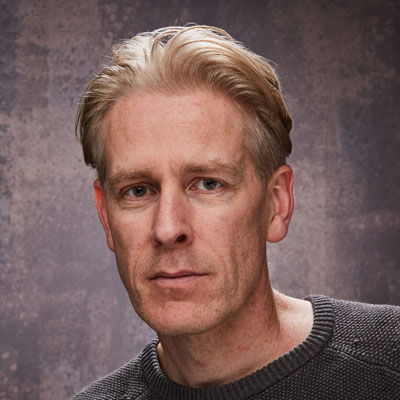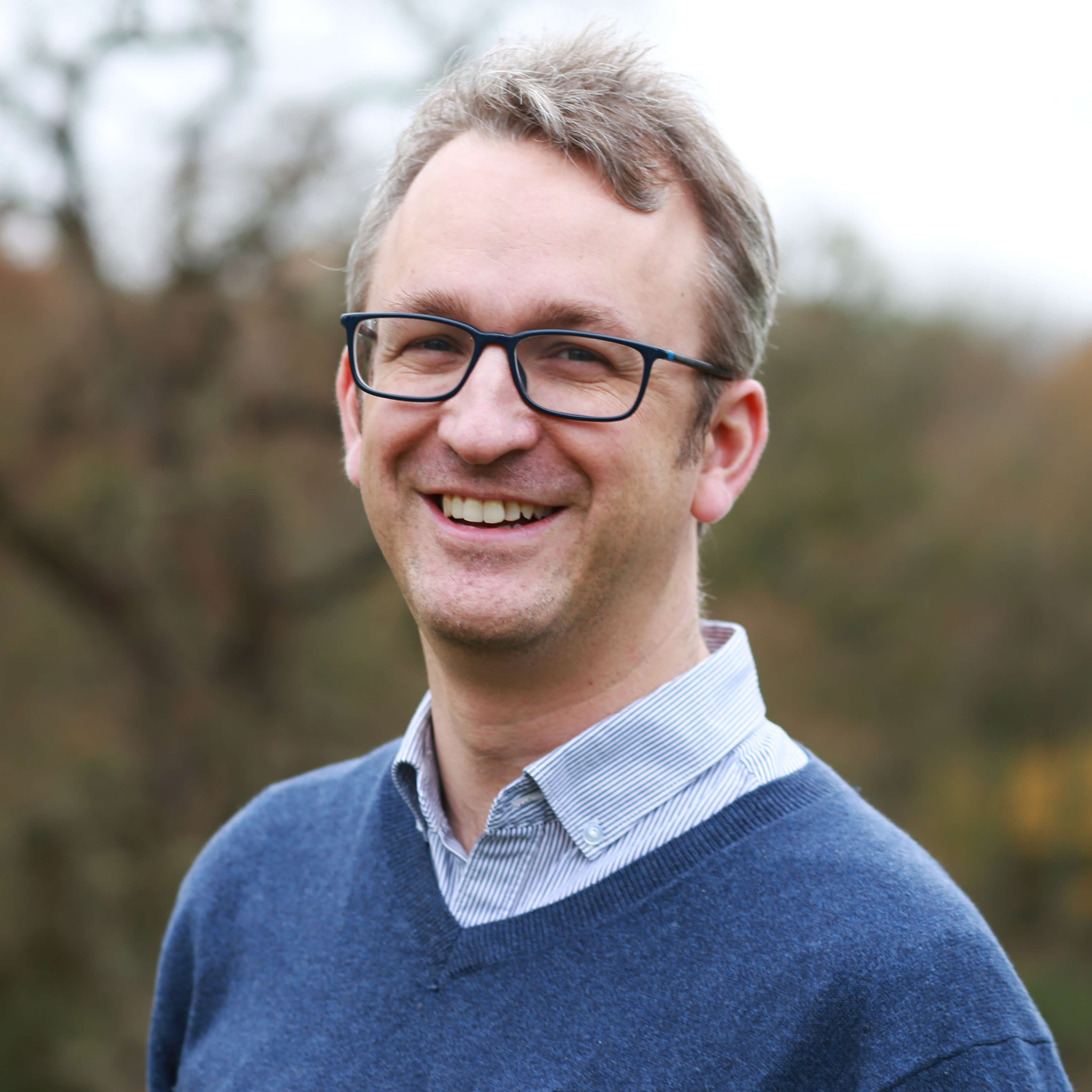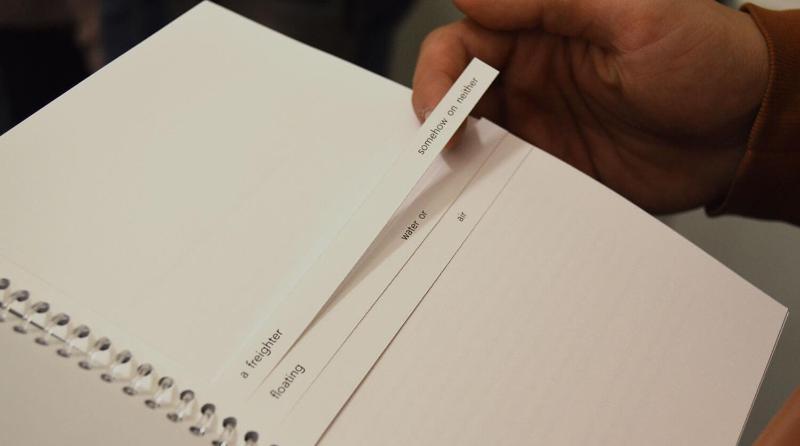Trimester one
Focus on making new work, develop your skills and explore the contexts in which you work. In the first trimester, you begin two year-long modules, which focus on core technical skills and the mutually beneficial links between research and practice. These support the core module in which you produce a portfolio of creative work.
The Sound Skills module is built on the idea that you’ll already have a set of core technical skills that underpin your practice, and offers you opportunities to extend your capabilities. You can choose a set of projects from a large number of options – including composition, sound art, sound design, sound production and (optional) elements of multimedia.
The Research and Practice module helps you interrogate your own practice and think about how it relates to current artistic and cultural contexts, drawing on our programme of visiting practitioners, who discuss their work. Focusing on developing skills in postgraduate-level research and writing, it's designed to give you the tools to reflect on how you work, what you make, and how it exists in the world. It also helps prepare you for further study as a researcher-practitioner if you continue to a PhD.
In the Creative Portfolio module you make your own work, supported by critique and discussion with the course team and other students. We’ll discuss broader issues as a group through the weekly seminar sessions. The seminars feature themed topics, giving you the chance to widen your knowledge of repertoire and key issues, as well as exploring how they relate to what you do as a composer or sound artist. You’ll produce a portfolio that focuses on your interests while experimenting with new ideas.
Trimester two
In the second trimester you develop your practice further, aiming towards an external presentation of the work you make in our summer SparkFest, which takes place on campus, across the city, and online. You continue to develop your work, supported by the weekly seminars, responding to internal and external opportunities and considering the way your work engages with audiences.
You also continue with Sound Skills, building on the exploration of new ways to work that you began in the first trimester. You’ll complete your Research and Practice module with a project which summarises the contextual artistic research you’ve undertaken.
Trimester three
The course culminates in an independent, creative, large-scale Major Project, which draws together the new approaches you’ve developed over the initial stages of the course. The project is presented at the end of the summer and, alongside the other creative practice you’ve completed, serves as a substantial portfolio piece for the next stage of your career.
